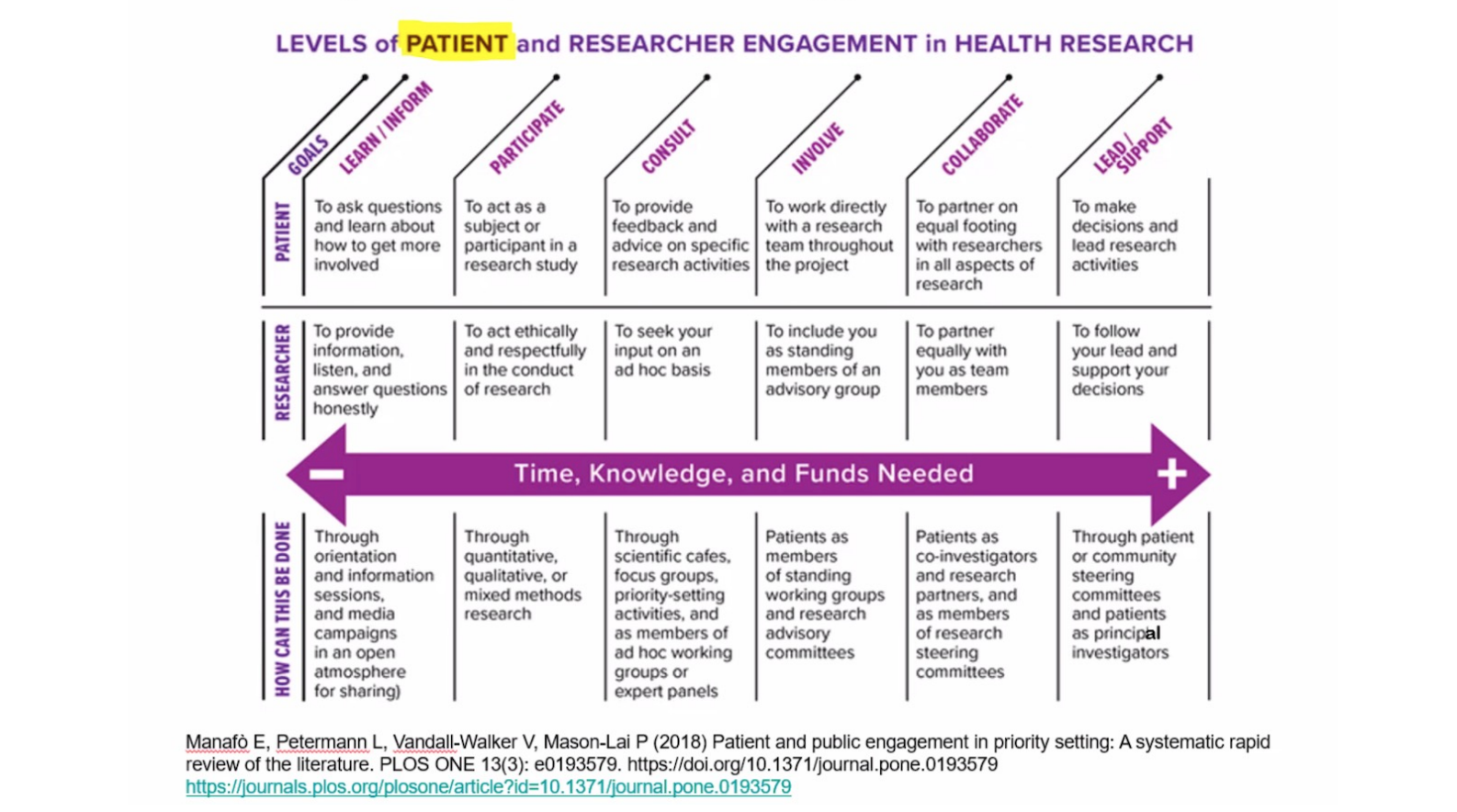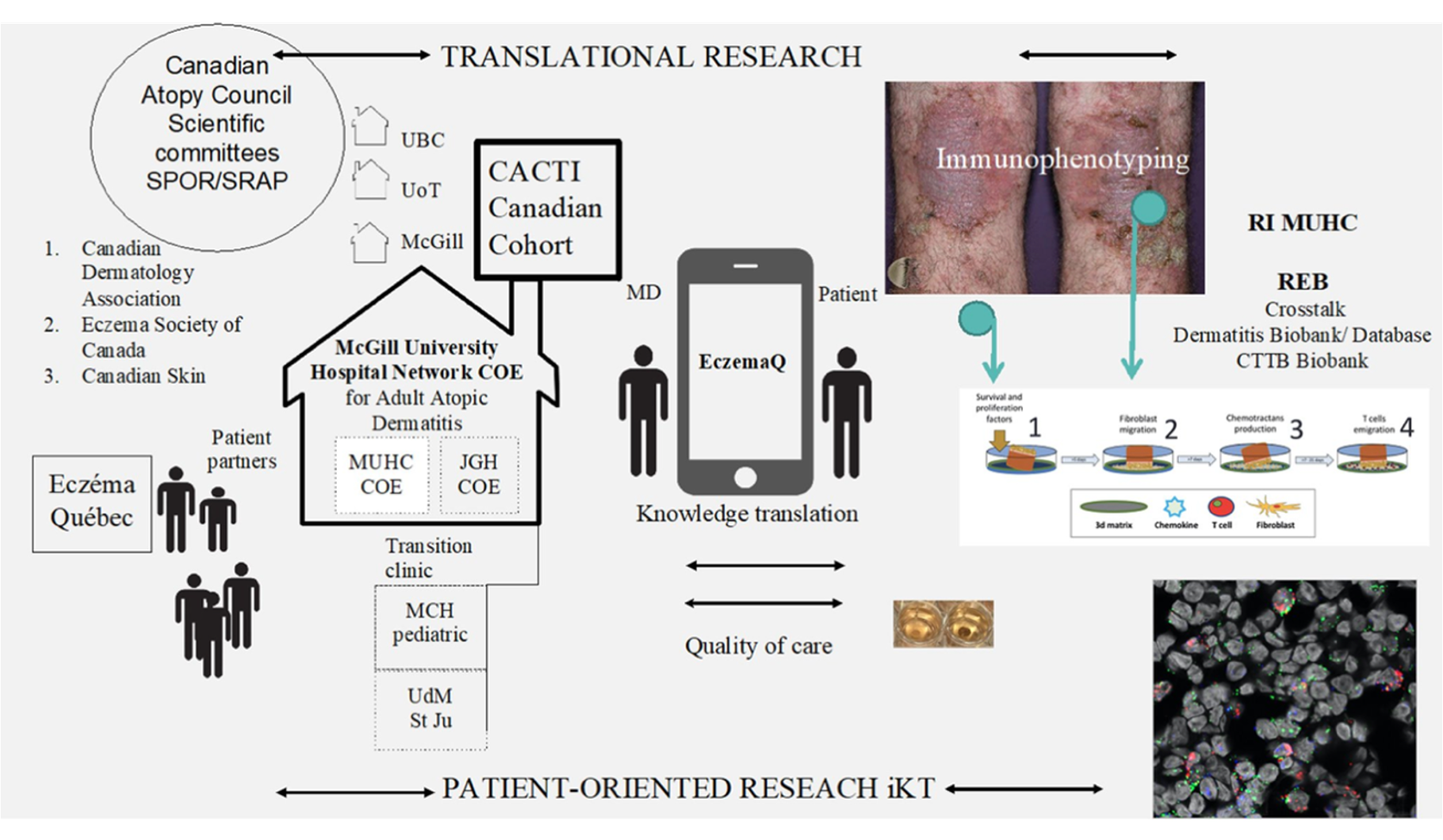"We believe that the medicine of tomorrow will be collaborative.”
Dr. Jack and her collaborators aim to address the simple but unanswered question, "Why does atopic dermatitis (eczema) persist across the lifespan, and what does Staphylococcus aureus bacteria have to do with it?" As an FRQS Clinicial Research Scholar (click here to learn more), Dr. Jack leads the only dedicated university-based atopic dermatitis research program in Canada, with a fundamental lab located at the Research Institute of the MUHC (RI MUHC). Dr. Jack's research program works to connect stakeholders and to value patients' experience and knowledge about their disease, alongside expert clinicians and researchers.

Why is this research needed?
Atopic dermatitis is not only the most common but also the most burdensome skin disorder in the world, and is strongly connected to problems with other surfaces that protect us from our environment, like airways (asthma, allergic rhinitis), the gut (food allergies and eosinophilic esophagitis), and infections and immune problems with skin and soft tissues.
Suffering with AD throughout life is now known to be common, and adults often have a harder time getting treated, with more severe skin inflammation, and more changes to blood immune cells. The reasons why are unclear, but one-tenth of adults can develop AD late in life, so environmental factors may play a large role.
Evidence for such culprits is strongest for the bacteria Staphylococcus aureus (staph). Commonly found in our noses, staph can cause serious infections. In AD skin, it is usually present. Staph is like an invasive species, pushing out the good ecosystem of the skin called the "microbiome." This problem with staph happens before eczema even starts . More staph is found with more severe disease and when staph increases this coincides with flares of disease. We don't understand how this bacterium or other factors like allergens alter the skin immune system or the expression of genetic factors. We do know that some populations and peoples seem to be more at risk. Dr. Jack's team is exploring the role of ethnicity, skin of colour, and Indigenous health to understand these differences and why certain people suffer more.
Collaborations
Atopic dermatitis changes constantly, making it hard to treat and to learn about. Collaboration is needed across many different teams with many different types of experience across the globe. Patients are disease experts because of their experience of AD and knowledge about triggers & treatment effects. To help build open science for eczema and to work *with* patients to solve problems, Dr. Jack started the Canadian Patient-Oriented Atopic Dermatitis Database and Biobank (C-POD). Funded by the Canadian Institutes of Health Research and the Skin Investigation Network of Canada, this team of doctors, patients, and scientists from across Canada are working with global associations to do research right. The aim of C-POD is to build capacity to work together to promote long-term remission of disease.
Dr. Jack's is also the lead laboratory for the Canadian Atopic Dermatitis Cohort for Translational Immunology and imaging (CACTI). Funded by the Canadian Dermatology Foundation, this multi-university, pan-Canadian collaboration is the largest study of adult AD in the country. We have little evidence to select between some of the old and new treatments that are available now. Even the newest types of therapy do not clear most patients’ skin. In order to improve our understanding of AD, how to treat it now, and to enable discovery of new treatments, the CACTI team enrolls patients into a large study at three sites across Canada (University of Toronto, McGill University and University of British Columbia). Data is collected on how severe patients’ AD is, what treatments they use, and, for patients who consent, blood and skin biopsy samples are collected to study the mechanisms underlying their disease. The CACTI team also tests to see which form of phototherapy works best for AD, and uses advanced imaging techniques to visualize the skin. This collaboration has begun to fill knowledge gaps for AD, and beyond answering the specific questions of this grant, the CACTI team is empowered to do even more work in the future, building capacity as a national team of dedicated clinician scientists.
About
Dr. Jack established and operates the first Canadian disease-specific human skin and blood immunophenotyping lab (RI-MUHC), with a research program and immunophenotyping platform for investigating in situ and ex vivo mechanisms of chronic inflammation with adult AD patients. Clinical research is combined with her RI MUHC wet lab.
Dr. Jack’s research uses strategies including;
-Studying the crosstalk between the immune system in skin, S. aureus and targeted treatments
-To model parts of the immune system like T cells and their disease signals, for example of pathogenic (type 2 IL-13+) to test treatments
-Deep 'High Dimensional' imaging and analysis of skin and blood genes, proteins and immune cells, using flow cytometry, confocal microscopy, single-cell analysis, and information technology
-Co-development of education, information exchange, and digital care tools.
-Building and studying digital innovation in eczema with patients, including EczemaQ mHealth app, recipient of a Canadian Dermatology Association Public Education Award and McGill’s $50,000 Hakim Innovation Prize for Most Transformative Clinical Innovation; this app for adult AD patients is currently being evaluated in the "McGill Adult Atopic Dermatitis Digital Outcomes Study" (MAADO)
-Working with the Unité de Soutien SSA Québec, to contribute to a Learning Health System in Quebec
-Patient-oriented dedicated MUHC REB ‘Dermatitis’ Redcap clinical database and biobank, harmonized with the Transdisciplinary Centre for Biological Therapies.
...and more!
For a complete list of Dr. Jack’s published work, please visit:
https://www.ncbi.nlm.nih.gov/myncbi/1dwy2dlQsgIM1O/bibliography/public/
You can also find Dr. Jack in the McGill Experts Guide via the following link:
https://www.mcgill.ca/newsroom/carolyn-jack


